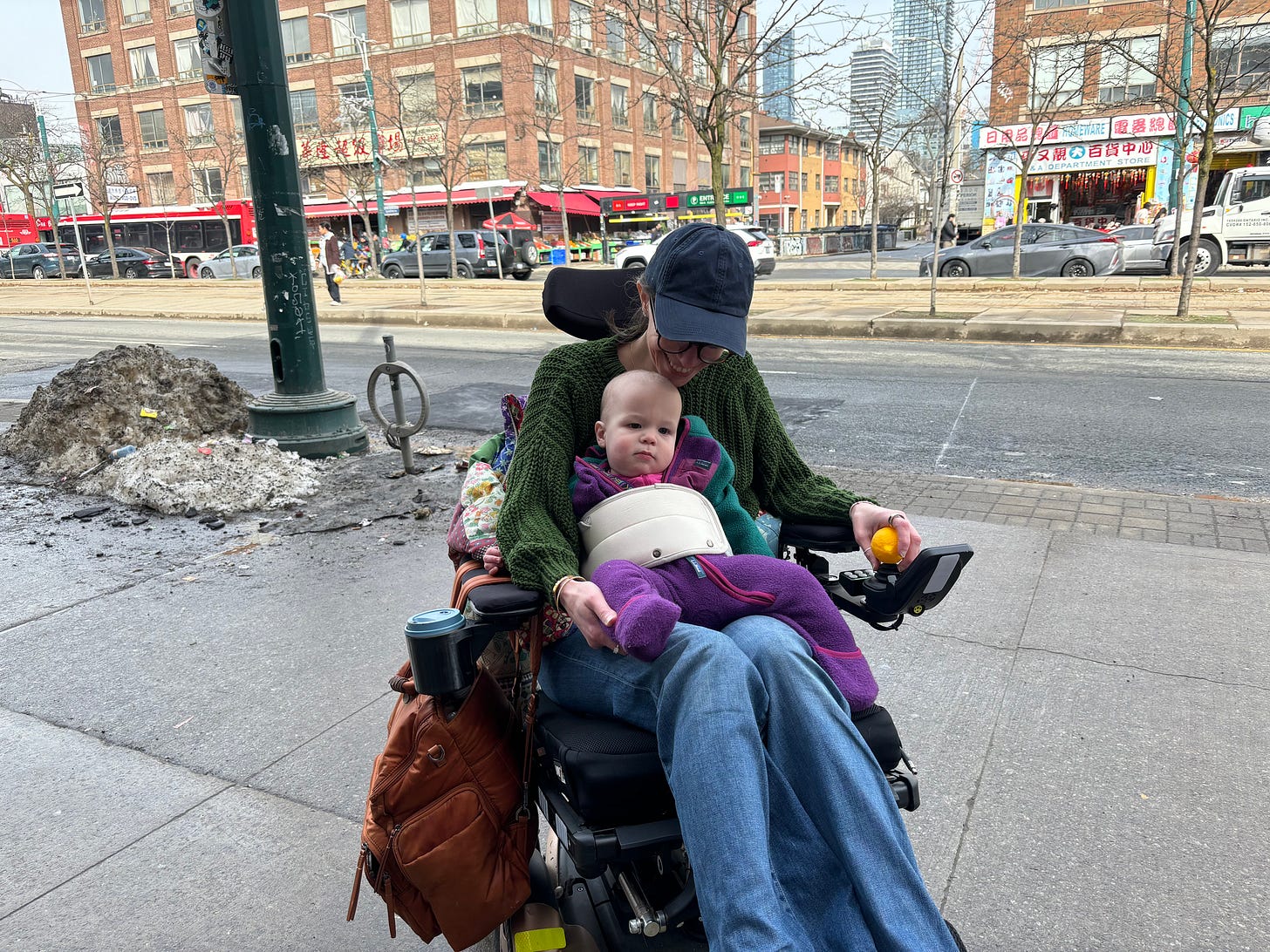Unfit Parent comes out in two weeks.
There are three things you can do to help it (and me).
Buy it here in the US or here in Canada (or ask your library to carry it)
Tell other people/post about it
Books don’t actually sell that many copies, on average. What that means is that each person can really magnify the impact of a book.
Also, I would absolutely love for you to join me at Unfit Parent’s virtual launch party on April 22, with Jessie Owen and Women and Children First. It’s at 8 pm EST, so it’s a rare opportunity to see me awake past 9. Get your free tickets here.
I’ve been doing a lot of interviews, written and recorded. Many of these conversations have made their way to the concept of suffering and, relatedly, mortality and control. I am at least partially responsible for guiding them there.
2025 has brought suffering of all sizes to so many people, our family included. Someone I love dearly is ill. And a friend, Alison Heck Dupee, died this month only a few weeks after her colon cancer diagnosis. She was 43 with three kids and a remarkably alive person. The weeks after Alison died, my grief was vomit lodged in my throat. It felt like it would never abate.
Every one of our lives has pain. Some of it, we bring on ourselves. Some of it is at the hands of others. Some of it is a function of living in flawed and fragile bodies.
Many of my interviewers have asked what disabled wisdom says about living in these specific days in the US and the world. How, practically, do we cling to justice and shared humanity? I don’t think any of us know.
That said, I listened to this week’s episode of This American Life and was reminded of how the details of other people’s stories can be miraculous in their power. It’s something I’ve tried to do with my book. Tell the complicated truth of being disabled and a parent.
I was thinking about these recent interviews, and how incredible it is to write a book and have other people work to connect their thoughts and experiences with my own. Near the end of one conversation, the interviewer and I discovered that we both share a deep love of 20th century Russian poets. We’ve since exchanged some of our favorites, including one by Wisława Szymborska, published in 1986. There is comfort in its desolation. When we are afraid and in pain, we are part of a long history. We are in what Mary Oliver calls “the family of things.” We work to heal each other and ourselves with the deep knowledge that we will never complete the task. Our little souls roam and the body is.
Tortures
Nothing has changed.
The body is a reservoir of pain;
it has to eat and breathe the air, and sleep;
it has thin skin and the blood is just beneath it;
it has a good supply of teeth and fingernails;
its bones can be broken; its joints can be stretched.
In tortures, all of this is considered.
Nothing has changed.
They body still trembles as it trembled
before Rome was founded and after,
in the twentieth century before and after Christ.
Tortures are just what they were, only the earth has shrunk
and whatever goes on sounds as if it’s just a room away.
Nothing has changed.
Except there are more people,
and new offenses have sprung up beside the old ones –
real, make-believe, short-lived and nonexistent.
But the cry with which the body answers for them
was, is, and will be a cry of innocence
in keeping with the age-old scale and pitch.
Nothing has changed.
Except perhaps the manners, ceremonies, dances.
The gesture of the hands shielding the head
has nonetheless remained the same.
The body writes, jerks and tugs,
falls to the ground when shoved, pulls up its knees,
bruises, swells, drools and bleeds.
Nothing has changed.
Except the run of the rivers,
the shape of forests, shores, deserts, and glaciers.
The little soul roams among those landscapes,
disappears, returns, draws near, moves away,
evasive and a stranger to itself,
now sure, now uncertain of its own existence,
whereas the body is and is and is
and has nowhere to go.









I've requested that my library in Gloucestershire, England stocks a copy.
I landed here from Cup of Jo. I had the great privilege of working with Alison briefly in WI. The school community she was a part of misses her dearly. It was wonderful to see her smile in the photo you shared. What a small world, and what a tragic loss.